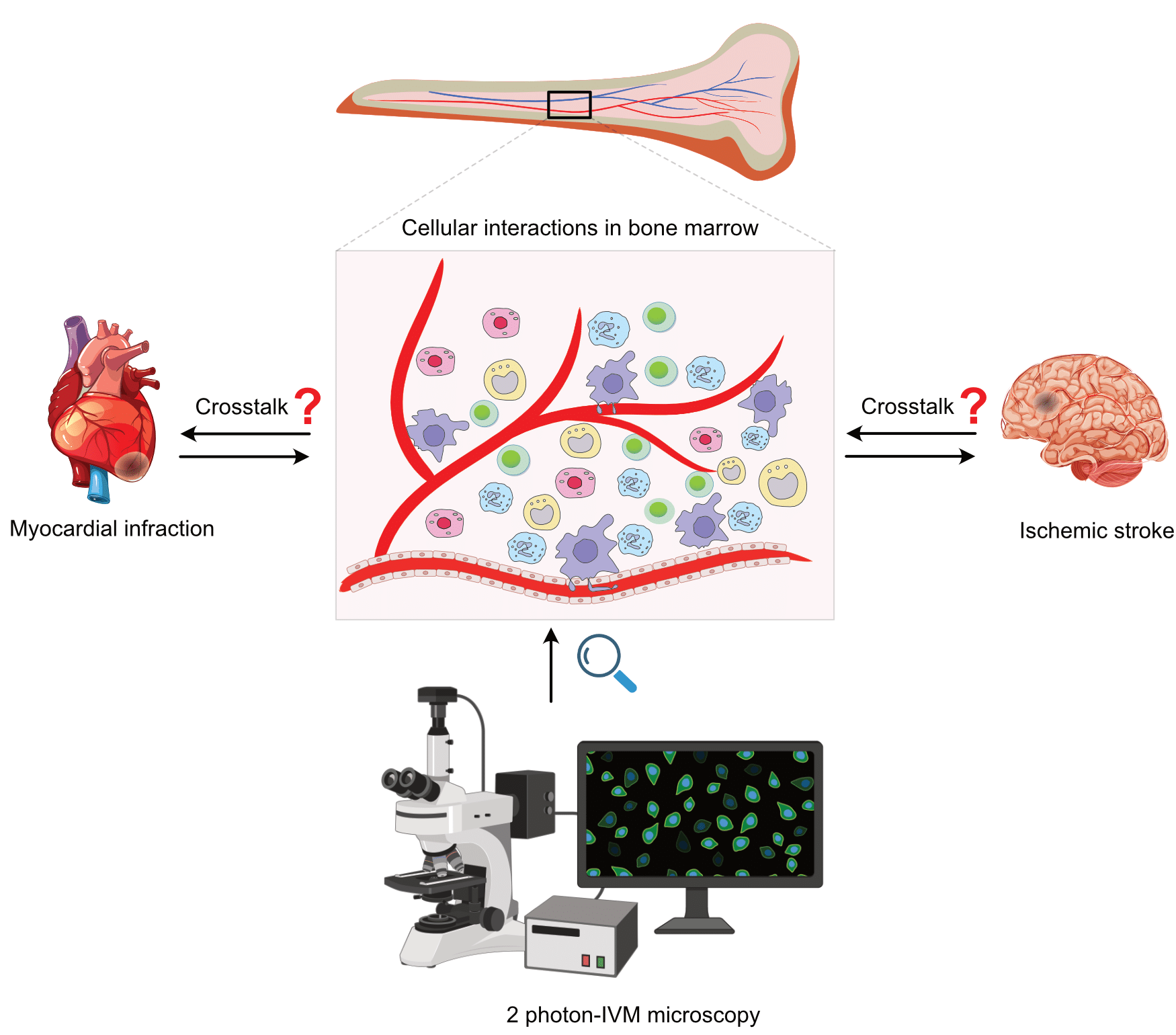Hematopoiesis is the process by which blood cells are formed, mature, and differentiate from hematopoietic stem cells (HSCs) in the bone marrow. This intricate and highly regulated process gives rise to the various blood cell lineages, including red blood cells (erythrocytes), white blood cells (leukocytes), and platelets. Hematopoiesis is vital for maintaining a balanced and functional blood cell population, supporting immune function, and ensuring proper oxygen transport. The process of hematopoiesis involves sequential stages of cell differentiation, beginning with multipotent hematopoietic stem cells that can give rise to all blood cell types. These stem cells undergo proliferation and differentiation to generate committed progenitor cells, which, in turn, differentiate into specific blood cell lineages through a series of maturation steps. This process is largely influenced by a complex network of cells, extracellular matrix, and signaling molecules.
By developing new tools and protocols for visualizing the bone marrow vasculature, platelets, and their precursor cells, megakaryocytes (MKs), using multiphoton intra-vital microscopy (2P-IVM) and light-sheet fluorescence microscopy, we have challenged previous concepts of MK maturation and clarified their interaction with neutrophils in the bone marrow. Currently, we capitalize on these techniques to study the crosstalk between hematopoiesis and systemic (thrombo-)inflammatory disease conditions, such as heart failure. Systemic thrombo-inflammatory disorders, frequently lead to increased production of inflammatory leukocytes or more reactive platelets, further worsening the disease outcomes. Hence, visualization of the interplay between thrombo-inflammatory processes, vasculature disturbances, and hematopoiesis is required to develop novel therapeutic strategies aiming to prevent this vicious cycle.
Hematopoiesis and Thrombo-inflammatory diseases: We study the dynamic interplay between hematopoiesis in the bone marrow and thrombo-inflammatory diseases, such as myocardial infarction and ischemic stroke, with the help of imaging modalities such as two-photon intravital microscopy and light-sheet fluorescence microscopy.
Key publications:
Liu W, Pircher J, Schuermans A, Ain QU, Zhang Z, Honigberg MC, Yalcinkaya M, Nakao T, Pournamadri A, Xiao T, Hajebrahimi MA, Wasner L, Stegner D, Petzold T, Natarajan P, Massberg S, Tall AR, Schulz C, Wang N. Jak2V617F clonal hematopoiesis promotes arterial thrombosis via platelet activation and cross-talk. Blood 2023 Dec24:blood.2023022260. doi: 10.1182/blood.2023022260.
Asquith NL, Carminita E, Camacho V, Rodriguez-Romera A, Stegner D, Freire D, Becker IC, Machlus KR, Khan A, Italiano JE Jr. The bone marrow is the primary site of thrombopoiesis. Blood 2024; 143(3):272-278. doi: 10.1182/blood.2023020895..
de Jonckheere B, Kollotzek F, Münzer P, Göb V, Fischer M, Mott K, Coman C, Troppmair NN, Manke MC, Zdanyte M, Harm T, Sigle M, Kopczynski D, Bileck A, Gerner C, Hoffmann N, Heinzmann D, Assinger A, Gawaz M, Stegner D, Schulze H, Borst O*, Ahrends R*. Critical shifts in lipid metabolism promote megakaryocyte differentiation and proplatelet formation. Nat Cardiovasc Res 2023; 2:835-852. doi: 10.1038/s44161-023-00325-8.
Gorelashvili MG, Angay O, Hemmen K, Klaus V, Stegner D*, Heinze KG*. Megakaryocyte volume modulates bone marrow niche properties and cell migration dynamics. Haematologica. 2019; 105(4):895-904. doi: 10.3324/haematol.2018.202010.
Stegner D, van Eeuwijk JMM, Angay O, Gorelashvili MG, Semeniak D, Pinnecker J, Schmithausen P, Meyer I, Friedrich M, Dütting S, Brede C, Beilhack A, Schulze H, Nieswandt B, Heinze KG. Thrombopoiesis is spatially regulated by the bone marrow vasculature. Nat Commun. 2017; 8(1):127. doi: 10.1038/s41467-017-00201-7.


